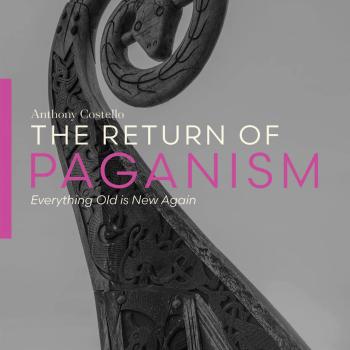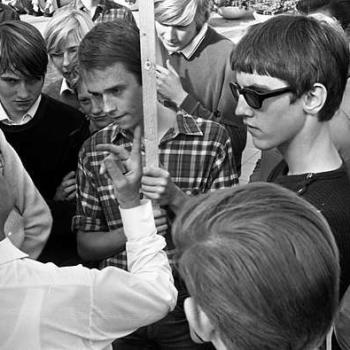The old, threadbare joke in Episcopal circles is that the difference between a liturgist and a terrorist is this: "Sometimes you can negotiate with a terrorist."
This year, the answer may be, "There's no difference at all."
Early reports indicate that the proposed changes to the liturgy that The Episcopal Church will consider at its General Convention this summer will include a "Litany for the Planet" that contains this prayer:
On eukaryotes and prokaryotes, archaea and viruses; on microbes of endless variety, the complex and the simple, Creator have mercy.
Those reports also include:
A recommendation that we authorize "The Message" Bible for liturgical use in the church.
And the sage advice that the Eucharist ought to be offered knowingly and in principle to anyone and everyone as an act of hospitality.
In the words of Dana Carvey's Church Lady, "Well, isn't that special."
Regarding the first proposal, one can only assume that this bit of prayer is based on the latest rave for anti-speciesism—the new ethic that argues humankind is not superior to the other occupants of the planet. We (meaning everyone and everything) are all, at one level, the same—just different in our complexity.
Never mind Genesis. Never mind the assertion, "God gave them dominion over . . ." Never mind the fact that the case for our responsibility to the planet is rooted in the responsibility implied by that language.
Arguing that we should use "The Message" in worship is a nice plea for relevance and it confronts our struggles to communicate the ancient drama in contemporary language. The latter is an important enterprise. The former is never a good reason for doing anything.
"The Message" is a fine paraphrase, but it's just that—it's a paraphrase, not a translation. And using it on a regular basis in public worship as a standard text for reading "The Word of the Lord" moves us one very significant step away from hearing that word.
The counter argument that is often offered is that "it speaks to me." Sure, lots of things speak to me as well. But not all of them can be or should be heard as Scripture, even things that are a close approximation.
The Eucharist is an act of hospitality? I've heard the arguments. It's an evangelistic opportunity. It's inclusive to offer it to everyone. To suggest that it's just for the baptized is exclusionary.
There's a problem with those arguments: The Eucharist is for the baptized and it is exclusive. It's for people who faced the darkness and said, I "renounce Satan and the spiritual forces of wickedness that rebel against God," then faced the light and vowed, "I turn to Jesus Christ" and I accept him as my Savior.
To erase those boundaries by offering the Eucharist as an act of hospitality is to erase the demands of the Gospel. It trivializes baptism. And it finally erases the reason for being a church.
Boundaries may sometimes feel as if they exclude, but they are, in the first place, the only way we have of saying what it means to belong, to commit, to follow, to journey into Christ. If you haven't made that commitment, it doesn't mean I don't love you. It doesn't mean that God doesn't love you. It doesn't mean your mother doesn't love you. It means you haven't begun that journey.
Coffee, as an act of hospitality, is available in the narthex.
All of which brings us to liturgists, terrorists, and why the two are becoming so much alike: They are both willing to commit suicide of a kind and they are both a threat to the life of certain institutions. In this case, of course, the suicide is theological and the unintended victim is the church.
We Episcopalians are fond of saying that we aren't confessional Christians. We are united by our worship. The problem with this trope, of course, is that liturgy is enacted theology (and it's also obviously contradicted by the fact that we say the Nicene Creed every week). You can't worship without asserting certain things about the God that you worship. You can't frame the life of a community liturgically without assuming certain things about what it means to belong to that community.
But we have now lived so deeply into this bit of errant wisdom about our shared life that we have slipped the bonds that hold us together as the people of God. We have dumbed down our approaches to the liturgy in the name of expecting less and welcoming everyone. We have forgotten that when we said that the sources for our theology are Scripture, tradition, and reason that "reason" didn't refer to "anything that occurred to us," but is a reference to reasoning with the church and for the church. And in our desperate efforts to attract people to our churches, we have ended up offering a compelling, liturgical argument for not going at all.
"Well, isn't that special."
4/29/2012 4:00:00 AM





